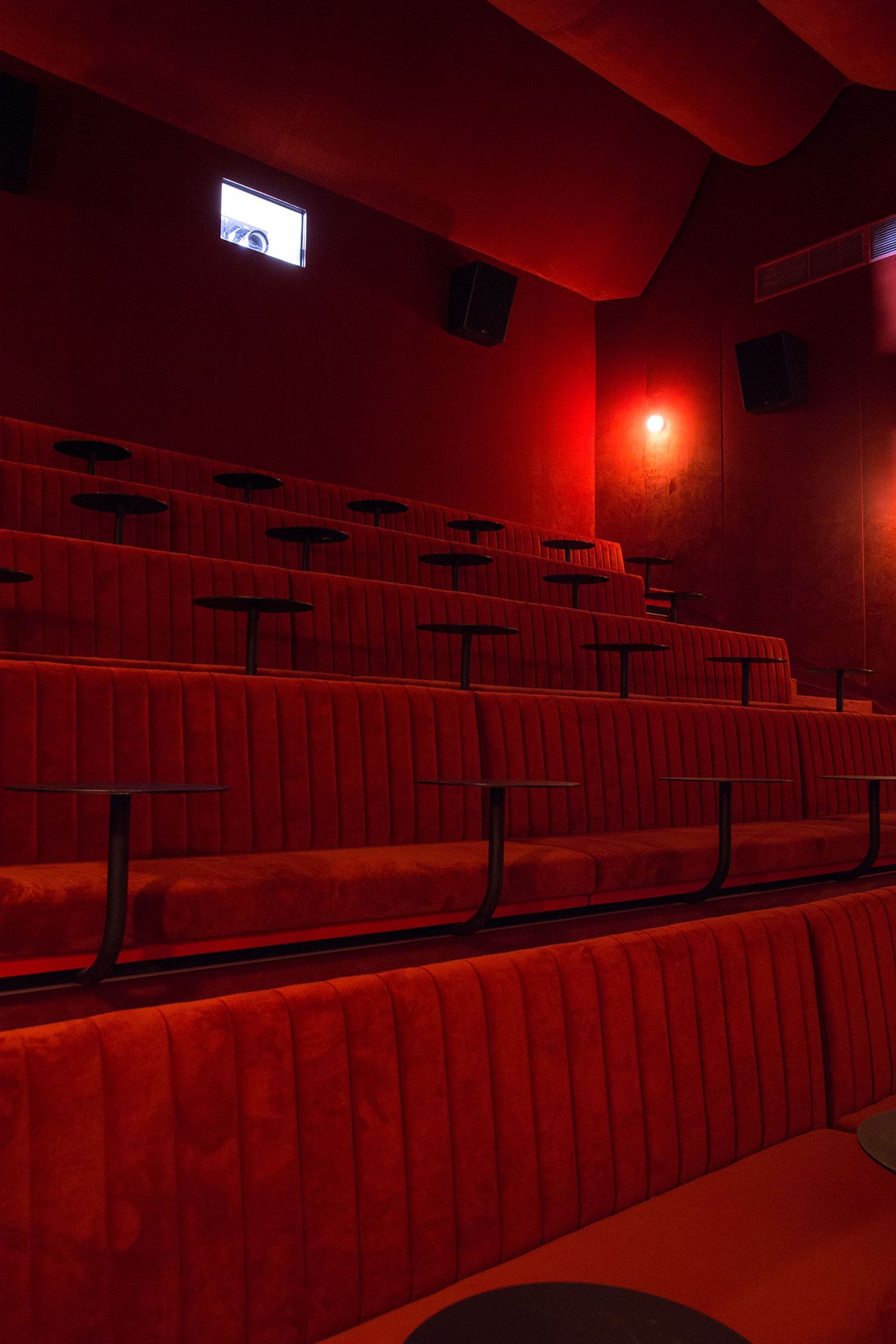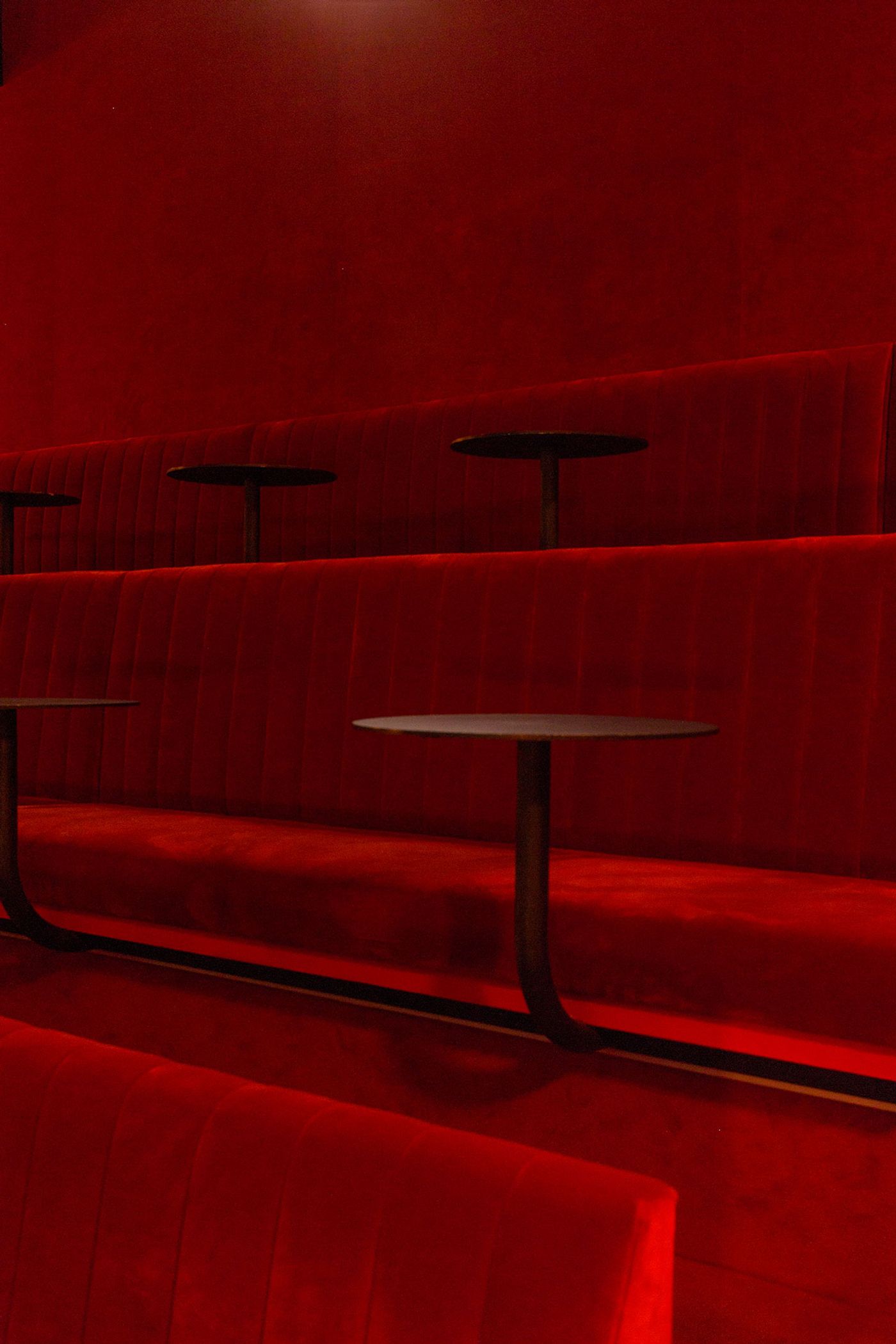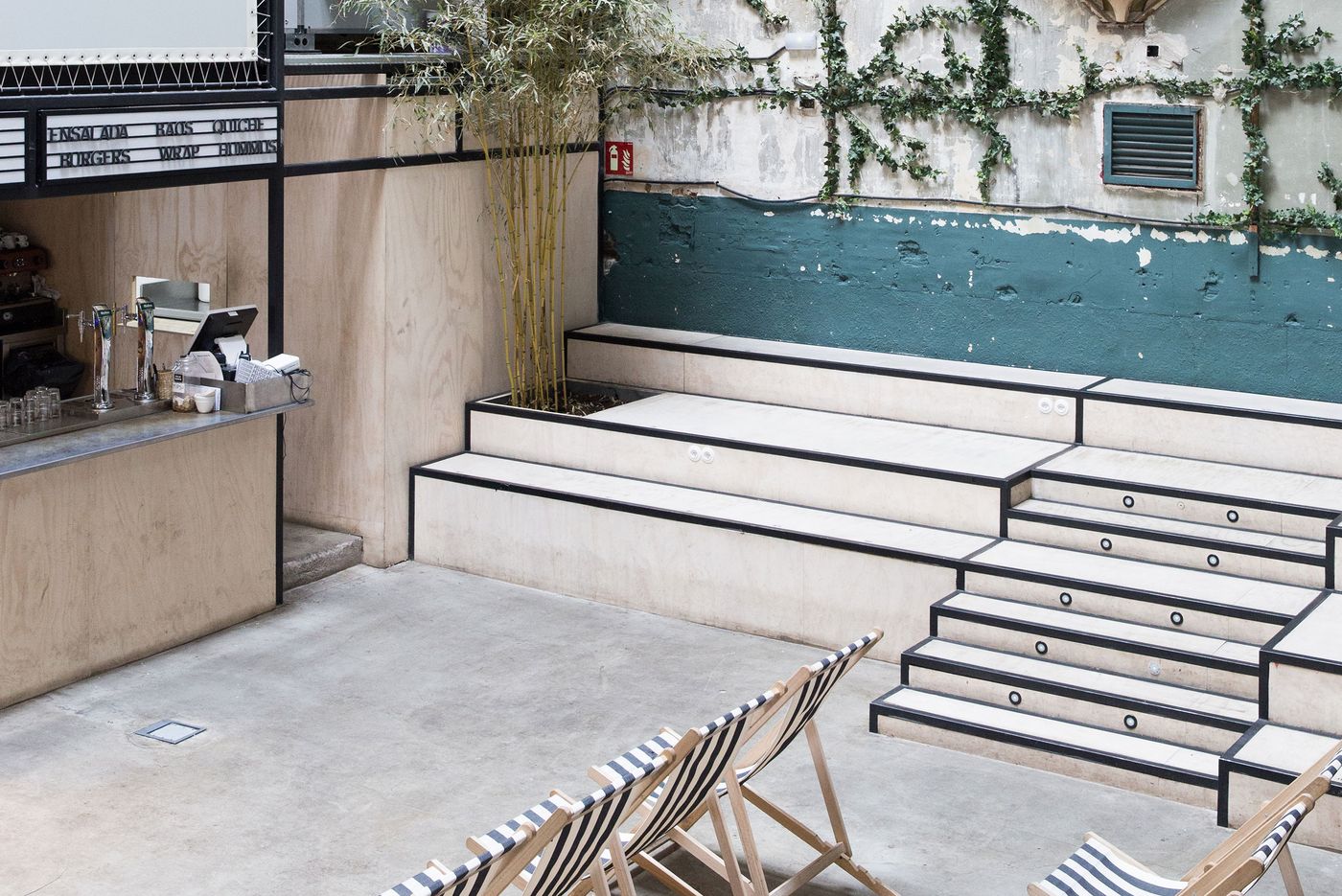
Madrid's Sala Equis Transforms its Erotic Past into Chilled Sophistication
Words by Eric David
Location
Madrid, Spain
Madrid's Sala Equis Transforms its Erotic Past into Chilled Sophistication
Words by Eric David
Madrid, Spain
Madrid, Spain
Location
One of the many side effects of our internet-centric culture has been the obsolescence of erotic cinemas most of which have closed down due to a diminishing clientele a long time ago. In Madrid, Spain, the last adult film cinema, Duque de Alba, shut its doors in 2015 but we are happy to report that it has since been reinvented as a multi-purpose, recreational hub offering a smorgasbord of pleasures from the gastronomical to the cultural. Renovated by Madrid-based architectural practice Plantea Estudio and renamed “Sala Equis”, the new venue, which apart from movie screenings also hosts live music performances, presentations, conferences and exhibitions along with food and drinks, has swapped the dark, lurid vibe of its previous incarnation for an ambience of decadent sophistication and vintage elegance.
Located in Madrid’s El Rastro neighbourhood, the Duque de Alba movie theater has a long, colourful history. Built in the courtyard of a neoclassical mansion that used to house from 1913 to 1933 the liberal newspaper El Imparcial, it opened its doors to Madrid’s film-going public in 1941. By the mid-80s, after screening Hollywood classics and art-house films, it was turned into an adult film cinema that operated for almost three decades until it was forced to close down in 2015.
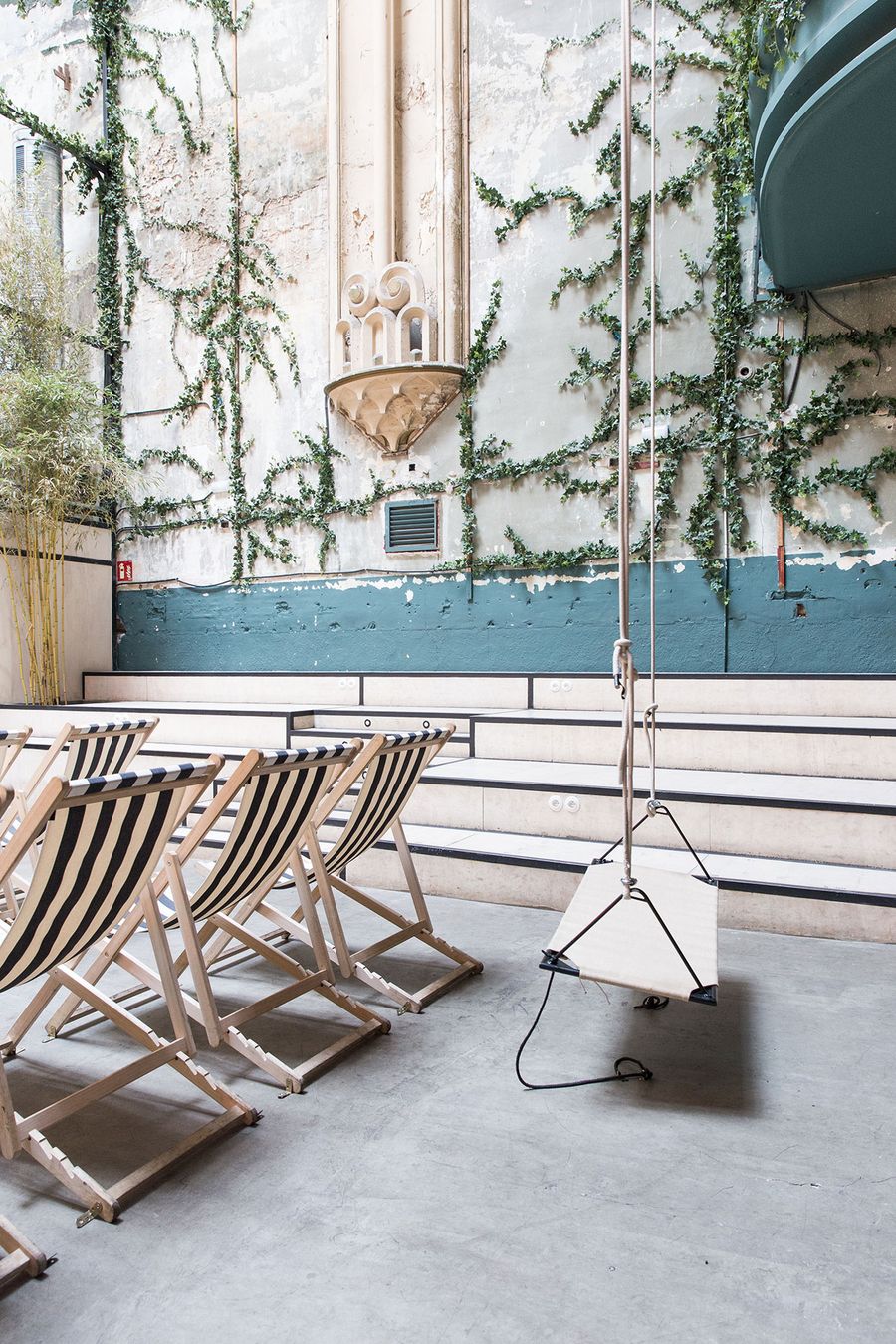
Photo by Alicia Macías.
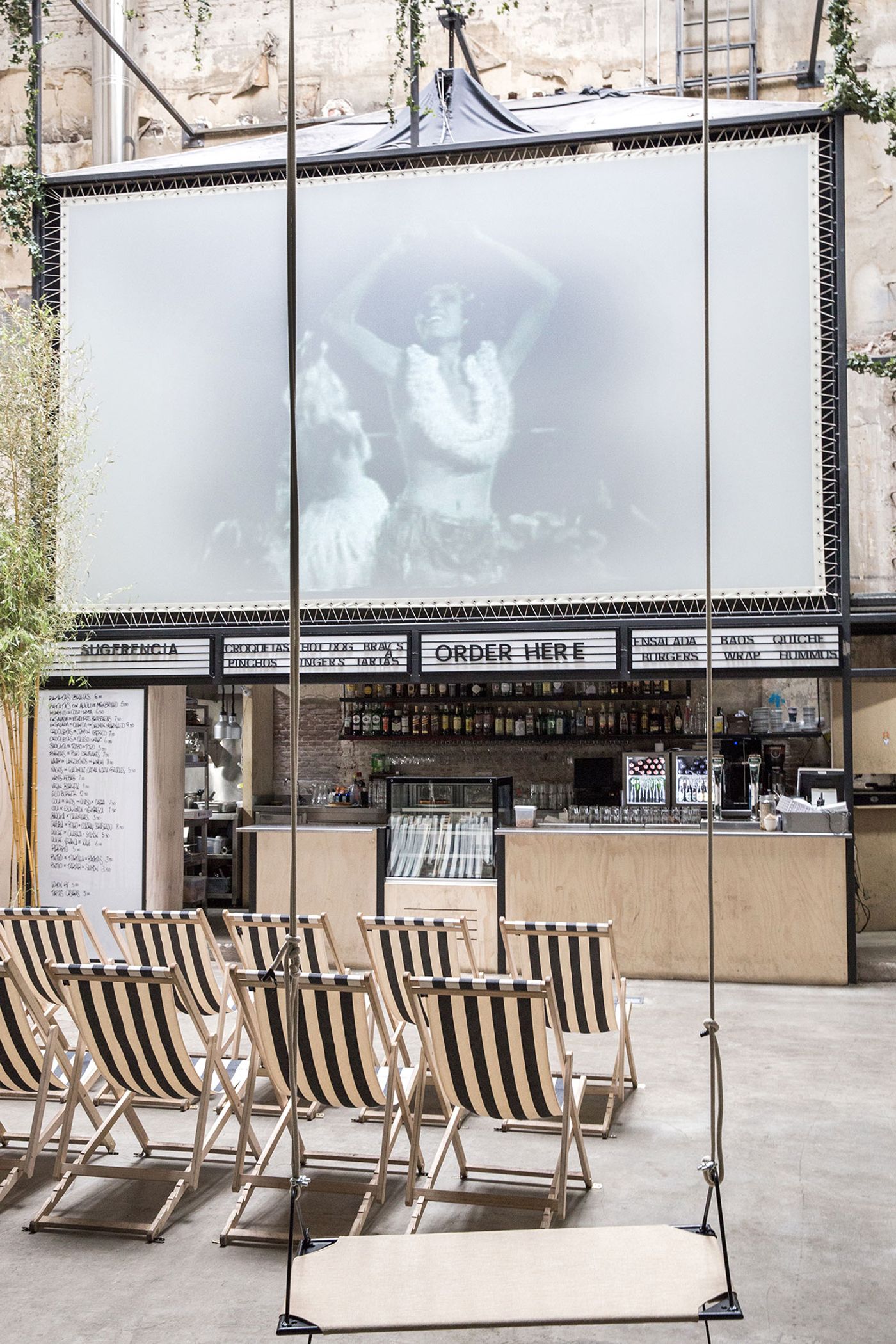
Photo by Alicia Macías.
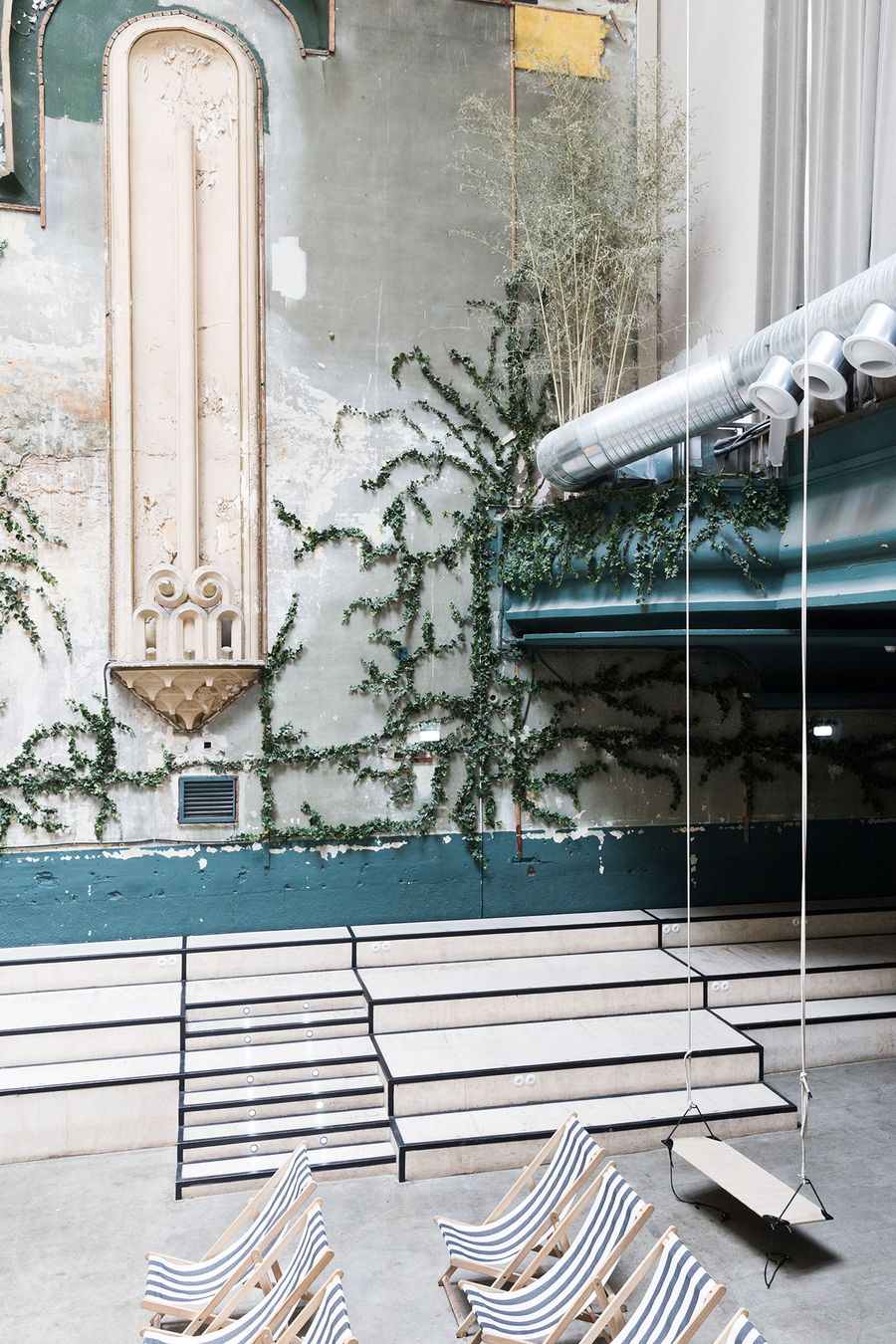
Photo by Alicia Macías.
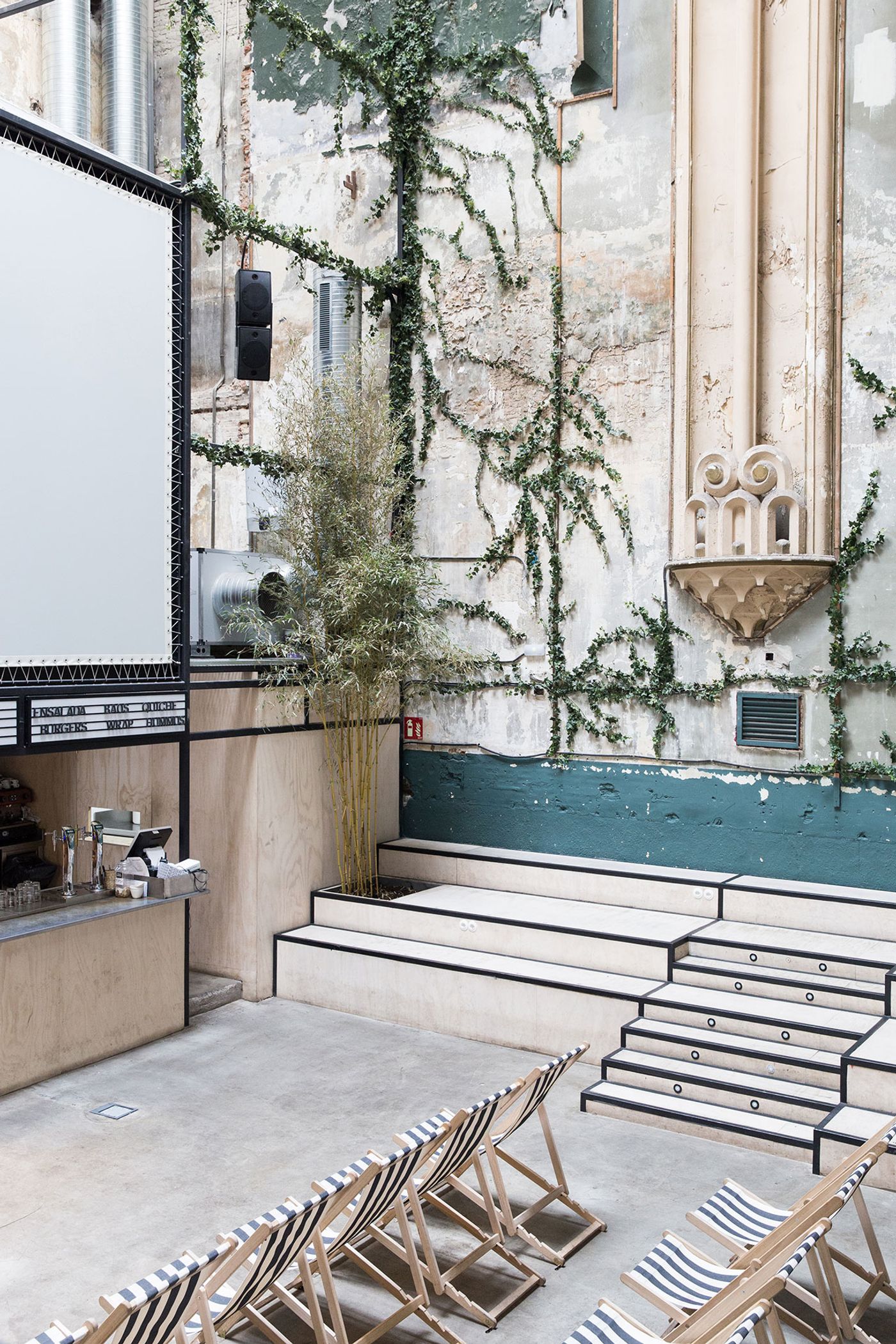
Photo by Alicia Macías.
Meanwhile, a creative collective of five young people, journalist Daniel Fernández Cañadas, political scientist Laura Suárez, and restaurateurs Cristina Rodríguez, Marie Jennings Camissa and Nacho de Padrón, had turned the disused mansion adjoining the cinema into a modern restaurant, fittingly named El Imparcial, accompanied by a design shop, a small art bookshop and an art gallery. Although “reviving the old cinema was a part of the project from the very beginning”, as de Padrón explains, it took two more years to get the job done.
At the core of the 700 square-metre complex that used to house Duque de Alba’s 300-seat amphitheater, is an “outdoors” plaza, a grand, multi-leveled, gathering space where patrons can socialize, drink and watch live performances. Taking advantage of its original use as a courtyard, the architects have designed a large skylight that during the day floods the space with daylight and introduced, in collaboration with landscaping studio Rentagarden, planted vegetation and wall-climbing greenery that firmly establish the impression of being outdoors. This sensation is further enhanced by the use of folding beach chairs and steel-framed garden sofas, which can be rearranged at will, as well as swing sets suspended from an 11-metre high, custom-built wooden bleachers.
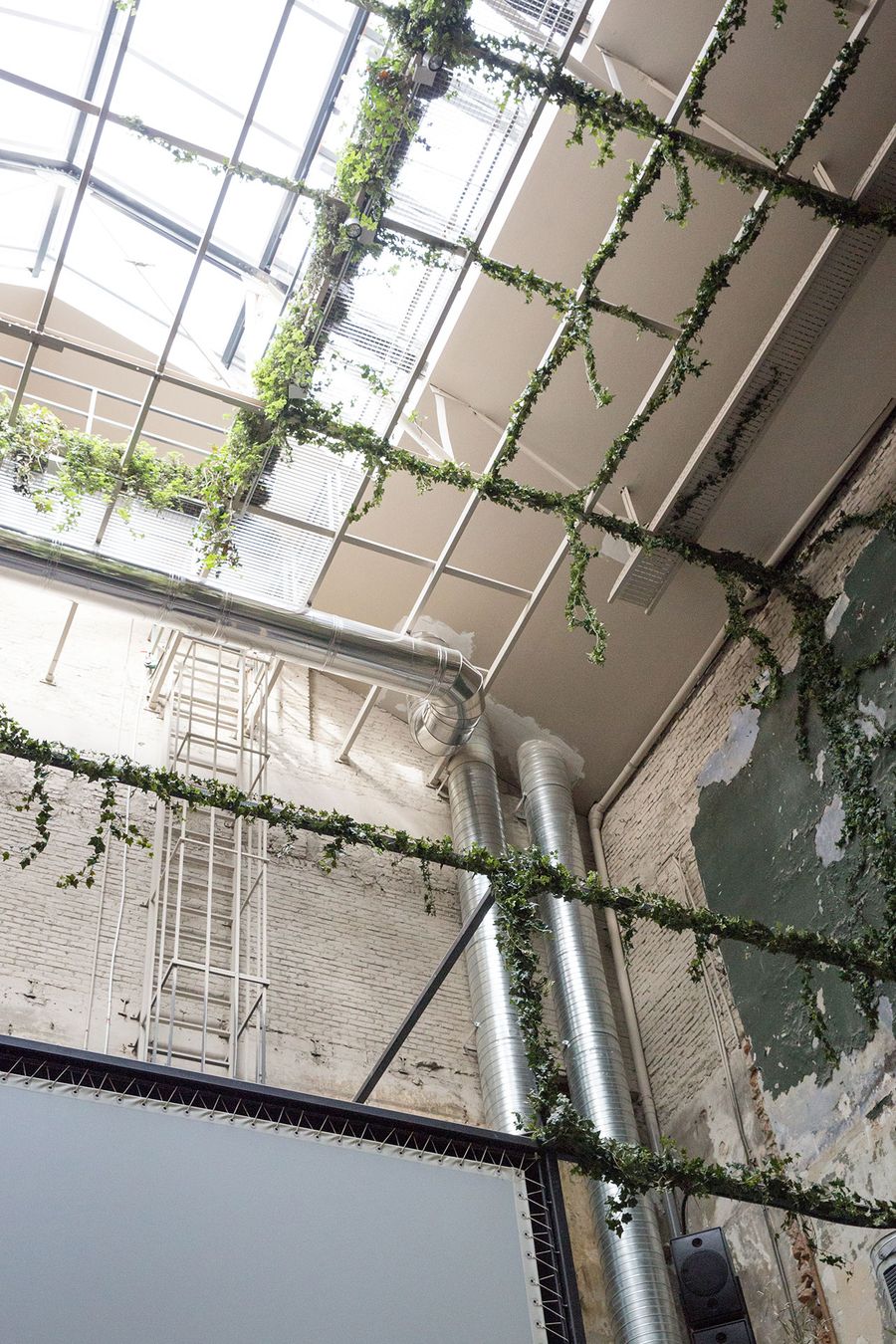
Photo by Alicia Macías.
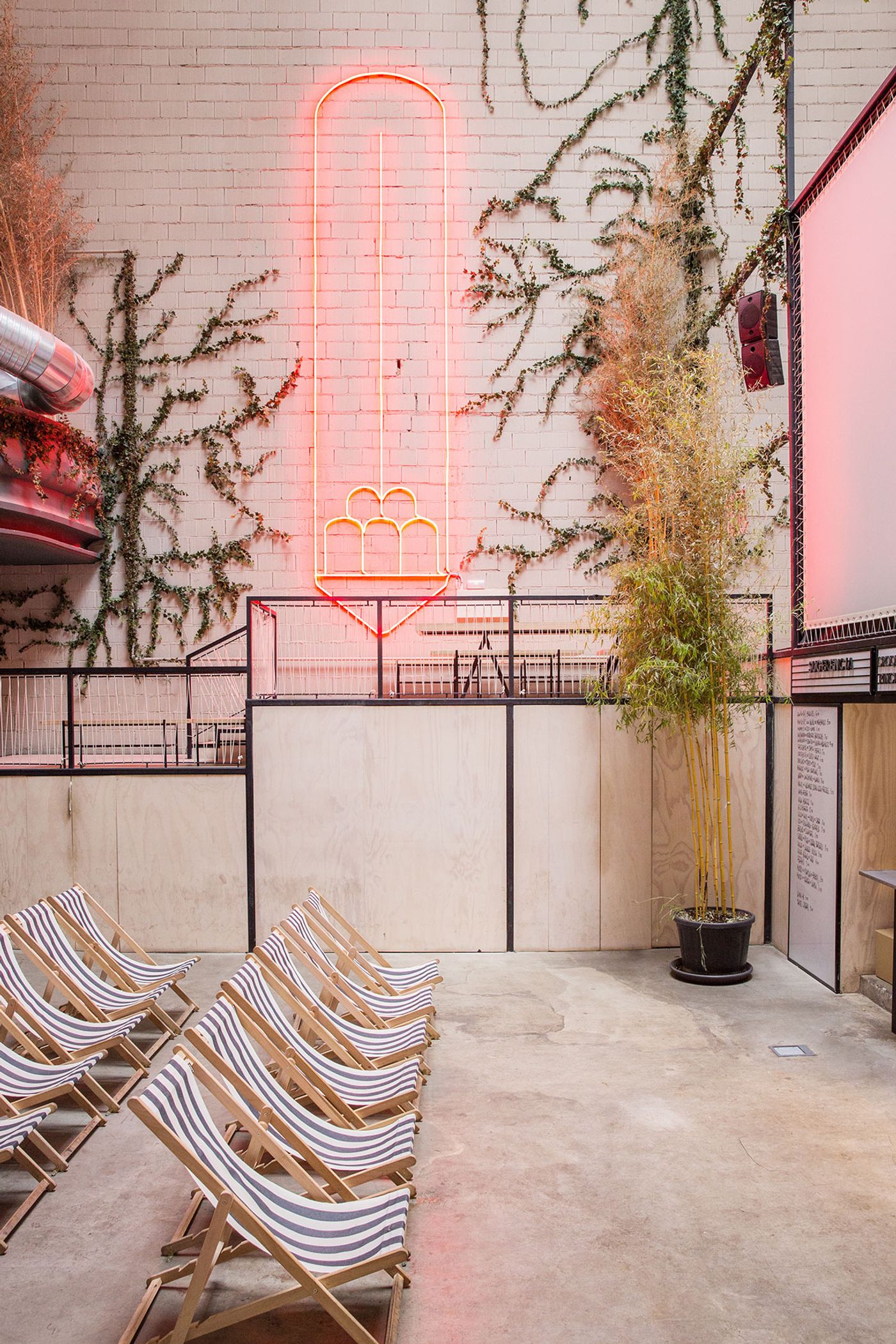
Photo by Alicia Macías.
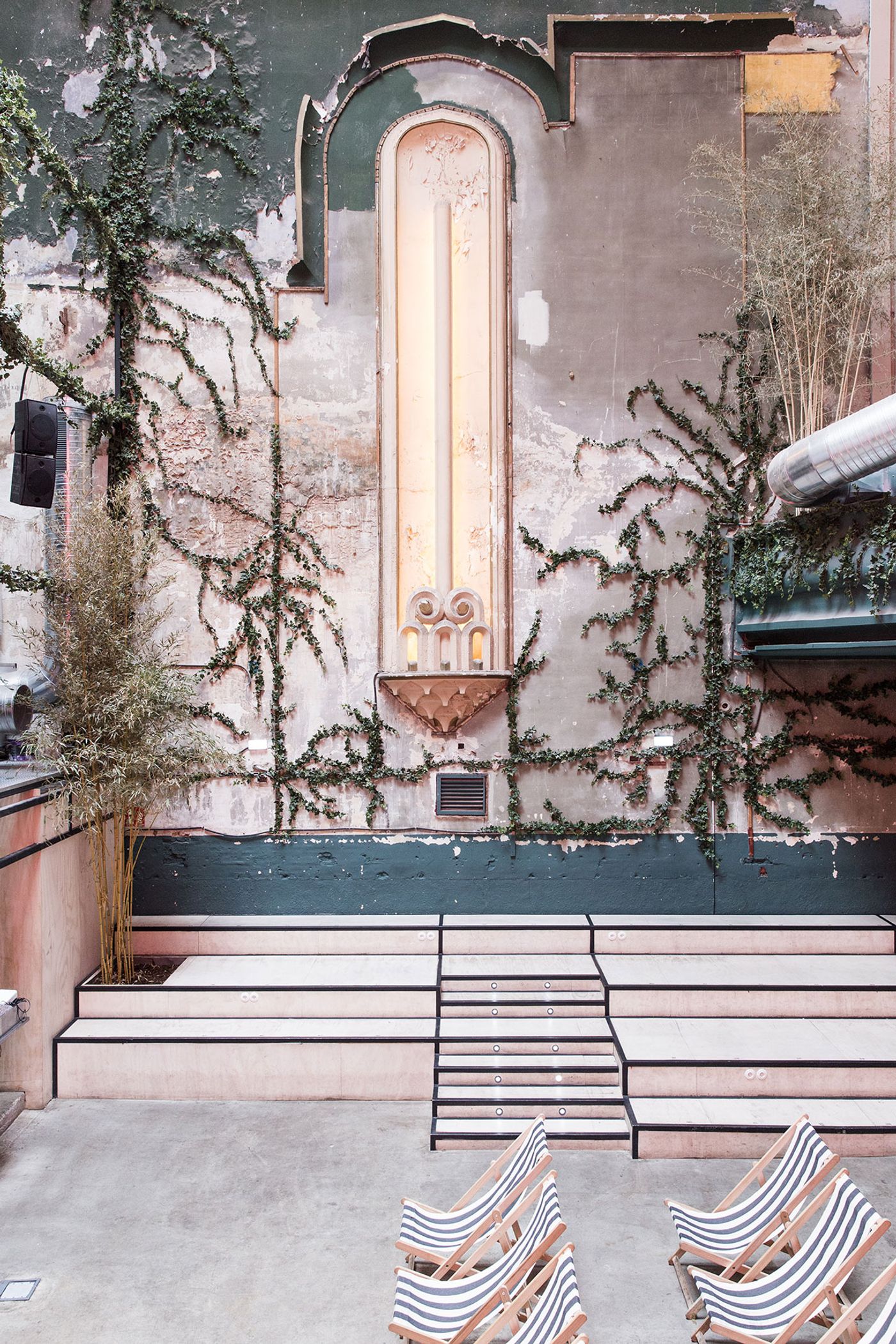
Photo by Alicia Macías.
Where the cinema screen used to be, there is now a minimally designed, metal-framed bar made out of plywood, serving both drinks and light snacks such as shrimp wraps with kimchi and oxtail baocatas, which patrons can enjoy while chatting or watching live performances and movies projected on a large canvas screen above the bar. A relaxed, playful atmosphere is complemented by vintage graphics inspired by the movie theatre marquees of the 50s and decorative neon lighting that mirrors the Art Deco plaster ornamentation that has been preserved along with the weathered walls of the original hall. Connecting the plaza to the front street is a long passage under the El Imparcial restaurant which the architects have transformed into a transitional lounge, complete with banquet seating lining one of the walls and small round tables.
The revamped cinema accommodating 64 people has been designed as a much more intimate space enveloped in plush red velvet with comfortable banquette seating and small round tables for patrons to enjoy refreshments. Equipped with the best sound and projection systems and showing an eclectic selection of films organized around monthly themed cycles such as “Movieland” exploring movies within movies and a “New vision of cinema in Madrid” that showcases young local talent, the new screening space offers a truly unique cinematic experience.
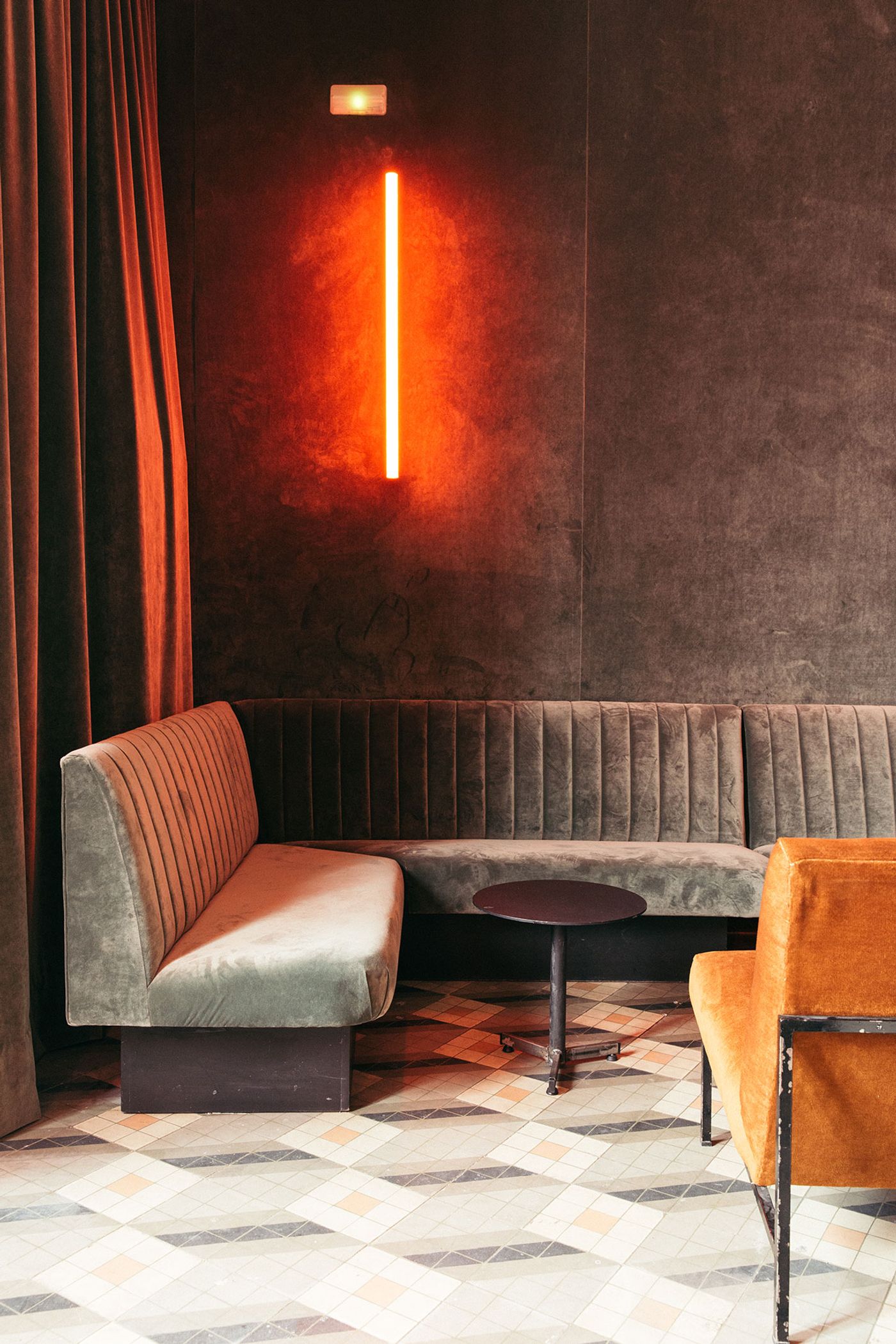
Photo by Alicia Macías.

Photo by Alicia Macías.
Perfectly complementing the renovated movie theatre, the cocktail bar next door has been conceived as an intimate, seductive space in juxtaposition to the vibrant, extroverted plaza below. Enfolded in dark velvet, which has been used for wall-cladding curtains, sofas and armchairs, and retaining the vintage flair of the original Art Deco tiled floors and ornamental staircase banisters, the bar area evinces a decadent glamour, enhanced by the use of red lighting that both picks up the cinema’s interior finishes and alludes to the venue’s previous incarnation.
Equis in Spanish stands for the letter “X”, which in mathematics represents the unknown but is also used to signify something X-rated, and indeed, Sala Equis is a surprising, versatile venue that has integrated its erotic, sensational past into its cultured, wondrous present.
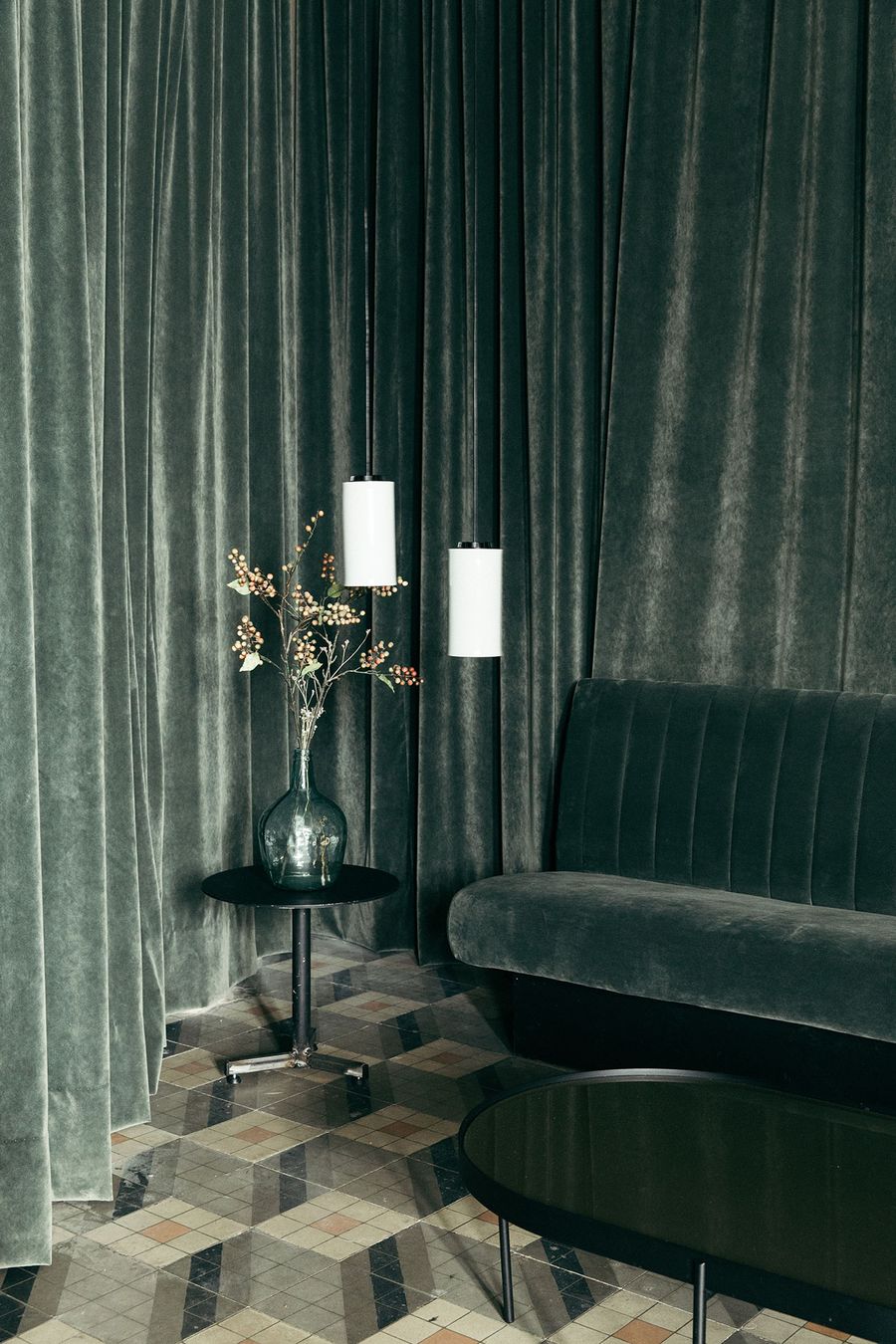
Photo by Alicia Macías.
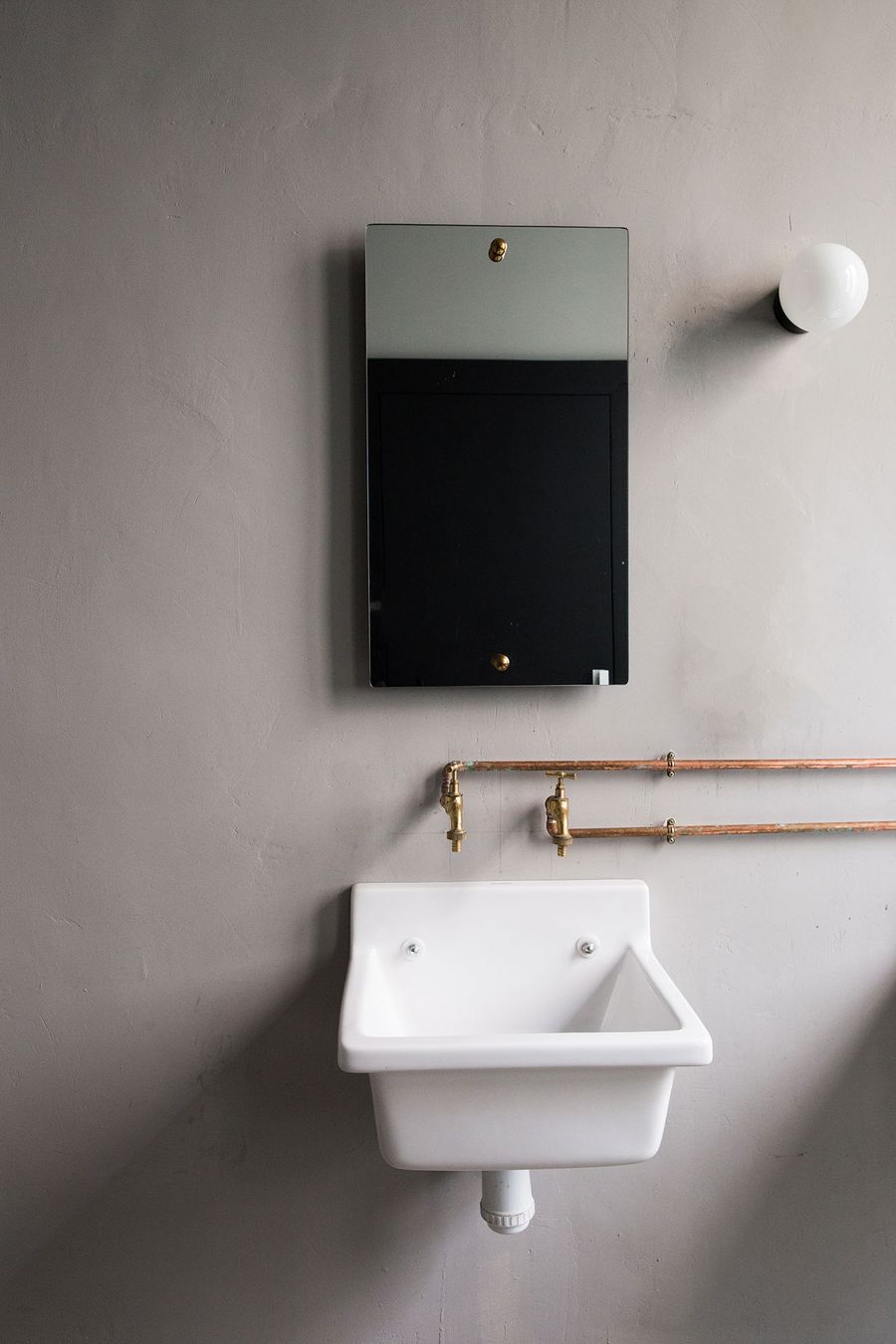
Photo by Alicia Macías.
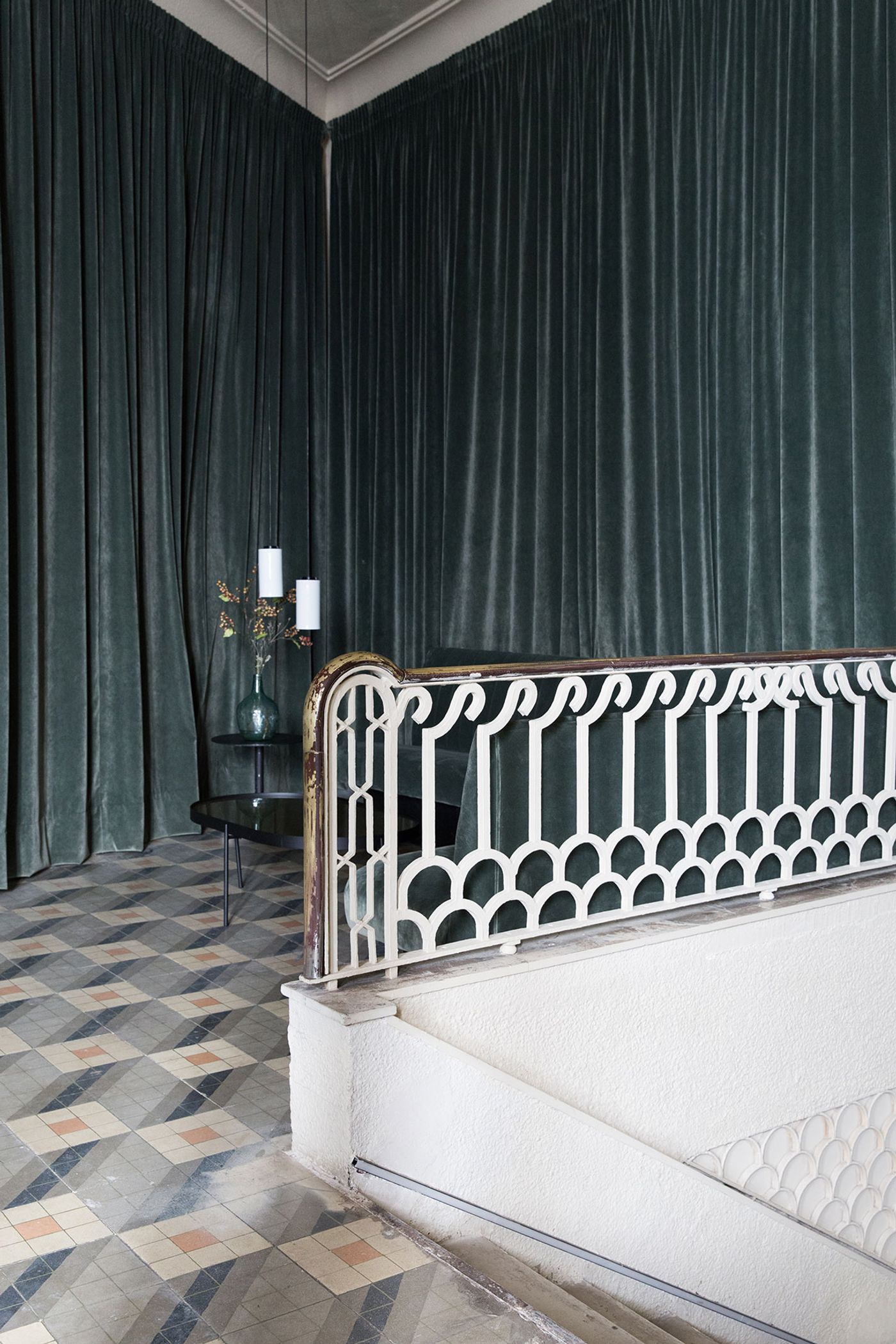
Photo by Alicia Macías.
